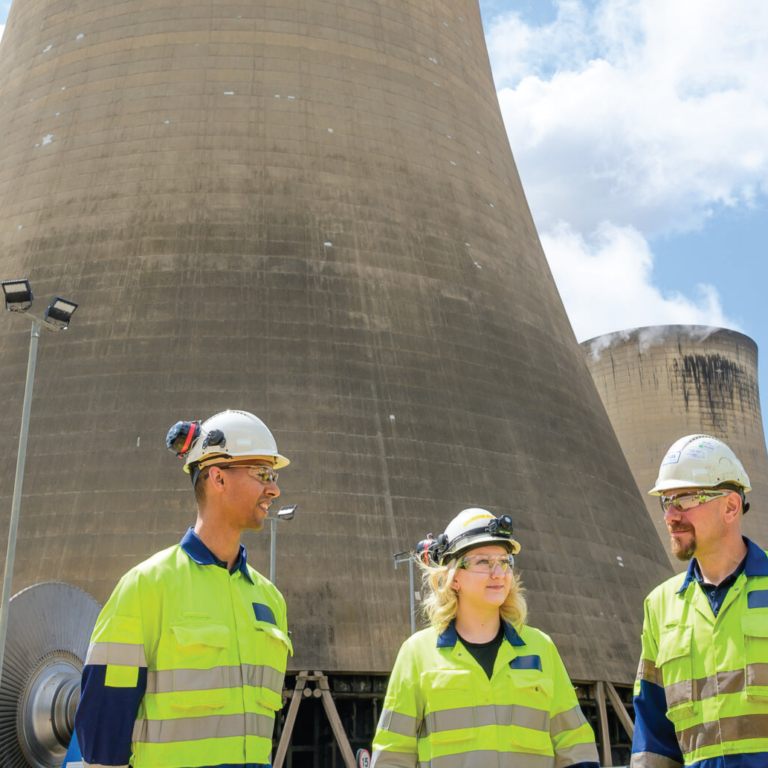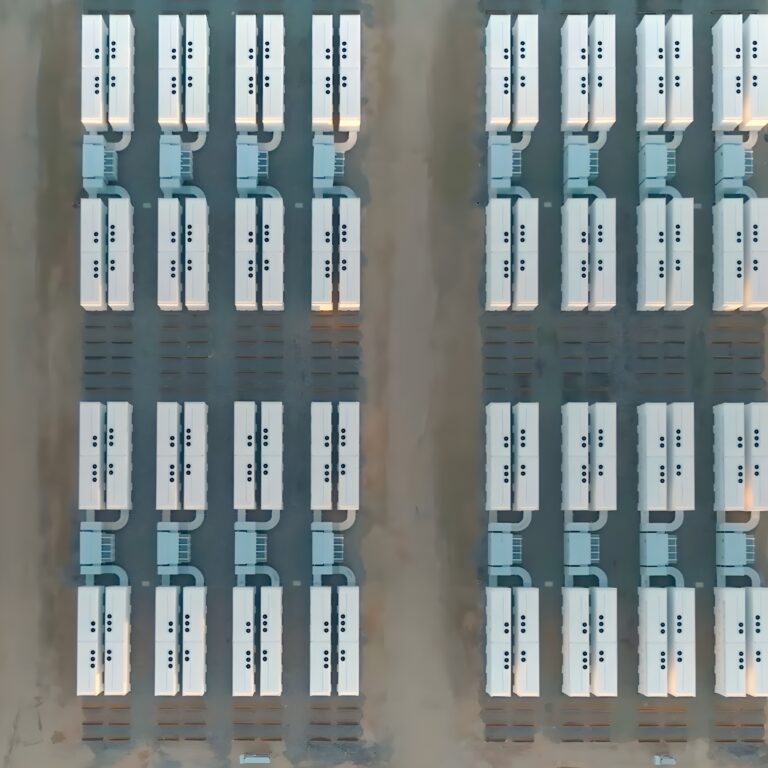Drax Group is working with the University of Sheffield on research which could help to revolutionise the UK’s energy future.
The company, which owns the country’s largest power station, near Selby in North Yorkshire, is sponsoring three PhD projects at the university.
Having transformed half of its coal fired power station to sustainable biomass, to become the UK’s largest single site renewable generator, Drax is also developing four rapid response gas power stations. In addition it recently announced it is exploring options for repowering some of its coal units to gas and developing battery storage to help support the UK’s changing energy needs. Drax’s retail businesses, Haven Power and Opus Energy, are increasingly working with customers to help them manage their energy use to reduce bills and their impact on the environment.
Dorothy Thompson, Drax Group CEO said: “The energy sector is changing beyond recognition in the UK and modern companies like Drax are transforming with it. The work with the University of Sheffield will help us to deliver on our aim of changing the way energy is generated, supplied and used for a better future.”
The projects Drax is working on with the University of Sheffield’s Centre for Doctoral Training in Energy Storage and its Applications, are aimed at increasing understanding of developing technologies, to enable Drax to support the UK’s energy system in the future.
The PhDs will focus on topics including:
- Use of flow batteries for grid support
- Customer interaction with vehicle to grid systems using smart technology
- Cleaning of exhaust streams for small power generators.
Jason Shipstone, Head of Drax Group’s Research and Innovation Team, said: “Flexibility is already important for the UK’s electricity system, but it’s going to become vital as we continue to decarbonise and more electric vehicles take to the roads. Without the right storage and flexibility the UK’s power systems will struggle to meet the increasing demand.
“This collaboration with the University of Sheffield will provide us with insights which I believe could help us to deliver better, smarter solutions for our future energy needs.”
The research on flow batteries will look at grid scale storage and the possible use of flow batteries versus other storage technology. Flow batteries have the potential to offer longer life, are faster to charge and deliver high storage capacities compared to other technologies.
The project on vehicle to grid systems is focused on the impact of human behaviour on smart energy technologies. This will be an integral part of the future systems required to enable electric cars to store excess power from the grid – like a fleet of small batteries, and then release the power again when needed.
The exhaust cleaning research will look at ways of using exhaust scrubbing technology in combination with small diesel or rapid response gas, to reduce the environmental impact of these essential assets, as they plug the gaps at times of system stress – such as when the wind doesn’t blow or the sun doesn’t shine.
Dr Solomon Brown, Deputy Director of the Centre for Doctoral Training in Energy Storage and its Applications at the University of Sheffield, said: “We are delighted the Drax Group have decided to work with us to develop their business in response to the changing energy economy, consumer demands and how energy needs to be generated. Energy storage is a critical translational technology for the UK, and this collaboration indicates commitment to low carbon energy generation and deployment”.
The research work will be carried out by PhD students at the University of Sheffield over three years from October.
Drax is also collaborating with the University on a potential fourth PhD in distributed energy storage which may be starting in 2018. The work on distributed energy storage is likely to look at ways of optimising storage assets within a small community to provide ancillary services to the grid, such as demand management, frequency response and load shifting.
Candidates interested in applying for this fourth PhD can find out more online.
ENDS
Media contact
Ali Lewis
Drax Group Head of Media Relations
T: 01757 612165
Jessica Gorton
Drax Group Press Officer
T: 01757 612848
Editor’s Notes
- Since upgrading half of its power station in North Yorkshire to use sustainable biomass from coal, more than two thirds of the power Drax produces is renewable, delivering carbon savings of 68% compared to gas.
- It is now the UK’s largest single site renewable electricity generator, producing 17% of the country’s renewable power; enough for four million homes.
- Drax is also developing four rapid response Open Cycle Gas Turbine (OCGT) projects, the first of which could be operational in 2020/21.
- These projects, based in England and Wales, are rapid response gas power stations which will be able to be up and running quickly at times of system stress, such as when the sun doesn’t shine or the wind doesn’t blow. By providing this kind of system support, these OCGTs will enable more intermittent renewables like wind and solar, onto the system, helping the UK to decarbonise.
- In addition the Drax group has also announced it is exploring options for repowering up to two coal units to gas, and building battery storage at Drax Power Station. The options could create up to 3.6GW of new gas generation capacity and 200MW of battery storage. The upgrade would enhance Drax Power Station’s flexible and responsive capability, and make Yorkshire the home of large scale battery technology.
The PhD projects at the University of Sheffield include:
Use of flow batteries for grid support
Flow batteries are a technology that have the advantage over other, competitor, battery energy storage technologies of longer live, quick response times and almost instantly rechargeable. This makes them potentially ideal for use at large scale for supporting the electricity grid, given their reliability.
This project seeks to perform a detailed techno-economic comparison between grid scale battery storage and the use of flow cell
Agent based modelling of customer interaction with vehicle to grid systems
This project will develop an agent-based model for the use of an electrical car charging facility utilised as part of a Vehicle-to-Grid (V2G) scheme. The model will incorporate the behaviour of the individual users of the facility and factors which impact its use; for example, the impact battery degradation has on vehicle performance will be included, which is expected to impact the take-up of such a scheme. Following this, control and scheduling of the batteries as a grid service will be added.
Once this model has been developed, it will be used to investigate both the robustness of the system to the variable behaviour of the vehicles’ owners and tariff or funding regimes that may be used to encourage their take-up while, for example, remunerating customers for the degradation in the lifetime of the vehicle.
The project will make benefit from the substantial work in V2G already being performed in the CDT, in particular in the scheduling and control of V2G systems as well as behavioural aspects of the interaction with such a V2G system.
Cleaning of exhaust streams from small generators
In an energy system with an increasing amount of renewable energy from which electricity production can be intermittent, there is a need for the ability to quickly replace wind and solar sources when their contribution drops. For this grid support role, hydrocarbon generators such as diesel and open cycle gas turbines are important, as they capable of being brought online almost immediately. The purpose of this project is reduce the environmental impact of these essential assets.
The projects seeks to perform a model-based design and techno-economic analysis to study the cleaning of exhausts of small generators, for example diesel or OCGT. The study will use existing technologies as a baseline, e.g. CCS and catalytic reduction, and select and adapt those most appropriate to the smaller scale generators of interest. A constraint in this is exhaust streams’ composition, which must be accounted for given that require particular attention given the deleterious effect that some species have on performance (e.g. NOx). Importantly, the system must be designed such that it can operate in a transient manner alongside these small generators, given their use as back-up generation. Further, an experimental element of the project may also be included, to test at bench scale key component(s) of the design.
About Drax
Drax Group plc plays a vital role in helping change the way energy is generated, supplied and used as the UK moves to a low carbon future. Drax operates the largest power station in the UK, based at Selby, North Yorkshire and supplies 7 percent of the country’s electricity needs. The energy firm converted from burning coal to become a predominantly biomass-fuelled electricity generator. Drax is the biggest single site renewable generator in the UK and the largest decarbonisation project in Europe. Its 2,300-strong staff operate across three principal areas of activity – electricity generation, electricity sales to business customers and compressed wood pellet production.
The Group includes:
Drax Biomass, based in the US and manufactures compressed wood pellets produced from sustainably managed working forests.
Haven Power, based in Ipswich, providing businesses with electricity.
Opus Energy, based in Oxford, Northampton and Cardiff, providing electricity and gas to businesses.
Billington Bioenergy, based in Liverpool with depots across the UK, is one of the leading distributors of wood pellets for sustainable heating in the UK.
For more information visit www.drax.com
About the University of Sheffield
With almost 27,000 of the brightest students from over 140 countries, learning alongside over 1,200 of the best academics from across the globe, the University of Sheffield is one of the world’s leading universities.
A member of the UK’s prestigious Russell Group of leading research-led institutions, Sheffield offers world-class teaching and research excellence across a wide range of disciplines.
Unified by the power of discovery and understanding, staff and students at the university are committed to finding new ways to transform the world we live in.
Sheffield is the only university to feature in The Sunday Times 100 Best Not-For-Profit Organisations to Work For 2017 and was voted number one university in the UK for Student Satisfaction by Times Higher Education in 2014. In the last decade it has won four Queen’s Anniversary Prizes in recognition of the outstanding contribution to the United Kingdom’s intellectual, economic, cultural and social life.
Sheffield has six Nobel Prize winners among former staff and students and its alumni go on to hold positions of great responsibility and influence all over the world, making significant contributions in their chosen fields.
Global research partners and clients include Boeing, Rolls-Royce, Unilever, AstraZeneca, Glaxo SmithKline, Siemens and Airbus, as well as many UK and overseas government agencies and charitable foundations.










